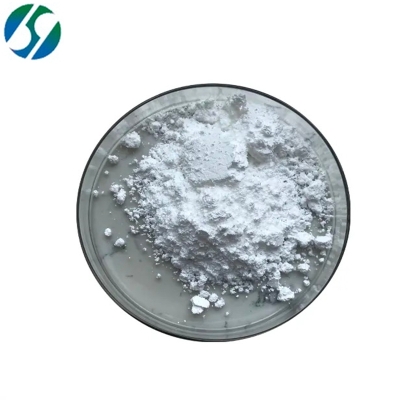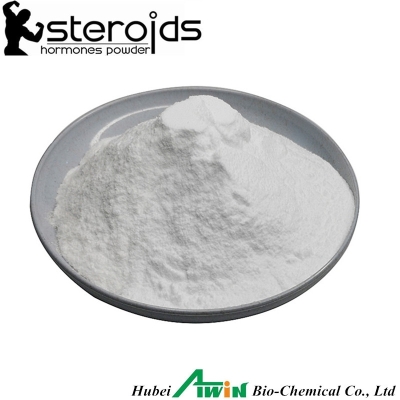-
Categories
-
Pharmaceutical Intermediates
-
Active Pharmaceutical Ingredients
-
Food Additives
- Industrial Coatings
- Agrochemicals
- Dyes and Pigments
- Surfactant
- Flavors and Fragrances
- Chemical Reagents
- Catalyst and Auxiliary
- Natural Products
- Inorganic Chemistry
-
Organic Chemistry
-
Biochemical Engineering
- Analytical Chemistry
- Cosmetic Ingredient
-
Pharmaceutical Intermediates
Promotion
ECHEMI Mall
Wholesale
Weekly Price
Exhibition
News
-
Trade Service
This article was originally written by Translational Medicine.
Please indicate the source when reprinted.
Can lead to a substantial reduction in body fat
.
After the researchers deleted the PANX3 gene in male mice, they lost fat and gained muscle mass, which was equivalent to exercising 1 hour a day, 5 days a week for 6 weeks
.
Male mice without the PANX3 gene had an average reduction of 46 percent in body fat mass compared with male mice with the PANX3 gene
.
Researchers are now looking to develop PANX3 drug blockers, hoping to have the same effect as "removing" it, one day helping patients with obesity
.
And, if a combination of therapy, healthy eating, and exercise can block this "channel," it may further accelerate the response to treatment in obese individuals
.
It sounds too good to be true: Blocking a gene associated with obesity triggers a dramatic loss of body fat
.
Although the technique cannot be applied to humans yet, it may be a step closer to humans, according to new findings by an anatomy and cell biology research team led by Silvia Penuela at the Western Schulich School of Medicine and Dentistry
.
The research team found that deleting specific genes in male mice reduced fat and increased muscle mass, equivalent to exercising 1 hour a day, 5 days a week for 6 weeks
.
This is a remarkable discovery that could ultimately have major implications for obesity treatment, Penuela said
.
In a recent study led by doctoral candidate Brent Wakefield, Penuela's lab examined a gene called Pannexin 3 (PANX3) and its effect on adipose tissue in mice
.
The study was published in the International Journal of Obesity in an article titled "Pannexin 3 deletion reduces fat accumulation and inflammation in a sex-specific manner": https:// - 021-01037-4 This research was conducted in collaboration with other laboratories at Western University, including Professor Frank Beier and the University of Toronto
.
In humans, three Pannexin genes encode the proteins that form the channel
.
These channels are thought to be pores in the cell membrane and facilitate cell-to-cell communication
.
"Think of them as cell phones," Penuela said.
"
You
have a certain number of cell phones around the edges of your cells, and they send messages to other cells, telling them when to grow, when not to grow, and when to do other functions
.
" Highly expressed in adipocytes
.
When the PANX3 gene was deleted from mouse embryos (a new model developed by Penuela's team), the mice became significantly thinner and their muscle mass increased as they got older
.
"The body composition of the PANX3 knockout mice that did not exercise at all was the same as the mice that exercised," Wakefield explained
.
Male mice without the PANX3 gene had an average body fat mass compared to male mice with the PANX3 gene.
decreased by 46%
.
However, this effect was only found in male mice, not female mice
.
Penuela's team is still working out why this is the case
.
In addition, PANX3-deficient male mice also had much lower levels of inflammation in visceral adipose tissue, a major indicator of obesity associated with cardiovascular disease and other comorbidities such as diabetes
.
"We found a significant reduction in inflammatory markers in fat," Wakefield explained.
"
Deleting
this gene was even more potent than exercise, which we all know has an anti-inflammatory effect
.
" Overall, mouse fat cells without the PANX3 gene appeared to be Also less
.
The Penuela lab is now looking to develop PANX3 drug blockers that can be used to inhibit the function of PANX3 in humans
.
"If we can block it, we can hopefully achieve the same effect as removing it," Penuela said.
"
We
hope to one day help patients with obesity
.
" Although the results of this collaborative study are promising, Penuela There is also an important caveat to the study, he said
.
While the loss of fat mass and the gain of muscle is equivalent to exercising for an hour a day for six weeks, it is still essential to maintain a healthy diet
.
"If you've been eating a high-fat diet, like hamburgers and fries, no matter how much of the PANX3 gene you delete or block, it doesn't work, " Penuela explained
.
"When we fed mice without the PANX3 gene high-fat When it comes to food, the difference in body weight disappears," Wakefield said, "and diet always matters
.
" The researchers are already working with WORLDiscoveries, Western Technology's technology transfer office, to explore the development of gene-blocking drugs with industry partners
.
"These findings may lead to the development of new strategies and pharmacological targets for PANX3 channel function in the integrated management of obesity and inflammatory diseases," said Saqib Sachani, business development manager at WORLDiscoveries
.
"This provides a new target for therapeutic intervention
.
Next steps Will work closely with partners to identify and develop drug blockers
.
" Penuela acknowledges that obesity is a complex disease, influenced by genetic and life>
.
While she says exercise and a healthy diet remain the most important factors in creating a healthy body composition, PANX3 blockers could be a game-changer for those who are obese
.
"If we can combine therapy, healthy eating, exercise, and we can block this channel, it could really speed up the response to treatment in obese people," she explained
.
The study also found that exercise and diet can modulate PANX3
.
For example, exercise can reduce PANX3 levels
.
As the research team explores the creation of PANX3 blockers, the next step includes further studies of human genes, which could lead to new clues as to why some people gain weight more easily, while others are more naturally healthy
.
Penuela said her lab aims to analyze PANX3 in the human genome sequence, looking for mutations that could determine why some people are more prone to accumulating fat
.
"We may need to uncover certain genetic trends in humans," she said
.
Reference: https://medicalxpress.
com/news/2022-01-deleting-specific-gene-male-mice.
html Note: This article is intended to introduce The progress of medical research cannot be used as a reference for treatment plans
.
For health guidance, please go to a regular hospital for treatment
.
Recommendation·Event The first Yangtze River Delta single-cell omics technology application forum "Drug Precision" series of live broadcasts: the first issue focuses on the application of MRD in hematological tumors.
Popular articles Gene sequencing [Nature] challenges the theory of evolution, gene mutation is not random, and one day it will be Help fight cancer! Cancer Treatment [Cell Sub-Journal] New Discovery! The "dual personality" protein is not only a "firewall" against cancer, but also a "pusher" to promote cancer! Cancer Treatment [Nature Sub-Journal] Using Alum to Eliminate Tumors, Accurate and Minimal Side Effects! Combined with immune checkpoint inhibitors, the effect is even better! Gene Editing [Nature Sub-Journal] A new method for editing human cell genes! Medical research【Research】Another benefit of grapes! Eating grapes can increase the diversity of intestinal microbial communities and reduce cholesterol immunotherapy 【Science】 "Father of CAR-T" Carl June and his team have achieved another success! A single injection of mRNA in vivo produces CAR-T cells that treat heart damage
Please indicate the source when reprinted.
Can lead to a substantial reduction in body fat
.
After the researchers deleted the PANX3 gene in male mice, they lost fat and gained muscle mass, which was equivalent to exercising 1 hour a day, 5 days a week for 6 weeks
.
Male mice without the PANX3 gene had an average reduction of 46 percent in body fat mass compared with male mice with the PANX3 gene
.
Researchers are now looking to develop PANX3 drug blockers, hoping to have the same effect as "removing" it, one day helping patients with obesity
.
And, if a combination of therapy, healthy eating, and exercise can block this "channel," it may further accelerate the response to treatment in obese individuals
.
It sounds too good to be true: Blocking a gene associated with obesity triggers a dramatic loss of body fat
.
Although the technique cannot be applied to humans yet, it may be a step closer to humans, according to new findings by an anatomy and cell biology research team led by Silvia Penuela at the Western Schulich School of Medicine and Dentistry
.
The research team found that deleting specific genes in male mice reduced fat and increased muscle mass, equivalent to exercising 1 hour a day, 5 days a week for 6 weeks
.
This is a remarkable discovery that could ultimately have major implications for obesity treatment, Penuela said
.
In a recent study led by doctoral candidate Brent Wakefield, Penuela's lab examined a gene called Pannexin 3 (PANX3) and its effect on adipose tissue in mice
.
The study was published in the International Journal of Obesity in an article titled "Pannexin 3 deletion reduces fat accumulation and inflammation in a sex-specific manner": https:// - 021-01037-4 This research was conducted in collaboration with other laboratories at Western University, including Professor Frank Beier and the University of Toronto
.
In humans, three Pannexin genes encode the proteins that form the channel
.
These channels are thought to be pores in the cell membrane and facilitate cell-to-cell communication
.
"Think of them as cell phones," Penuela said.
"
You
have a certain number of cell phones around the edges of your cells, and they send messages to other cells, telling them when to grow, when not to grow, and when to do other functions
.
" Highly expressed in adipocytes
.
When the PANX3 gene was deleted from mouse embryos (a new model developed by Penuela's team), the mice became significantly thinner and their muscle mass increased as they got older
.
"The body composition of the PANX3 knockout mice that did not exercise at all was the same as the mice that exercised," Wakefield explained
.
Male mice without the PANX3 gene had an average body fat mass compared to male mice with the PANX3 gene.
decreased by 46%
.
However, this effect was only found in male mice, not female mice
.
Penuela's team is still working out why this is the case
.
In addition, PANX3-deficient male mice also had much lower levels of inflammation in visceral adipose tissue, a major indicator of obesity associated with cardiovascular disease and other comorbidities such as diabetes
.
"We found a significant reduction in inflammatory markers in fat," Wakefield explained.
"
Deleting
this gene was even more potent than exercise, which we all know has an anti-inflammatory effect
.
" Overall, mouse fat cells without the PANX3 gene appeared to be Also less
.
The Penuela lab is now looking to develop PANX3 drug blockers that can be used to inhibit the function of PANX3 in humans
.
"If we can block it, we can hopefully achieve the same effect as removing it," Penuela said.
"
We
hope to one day help patients with obesity
.
" Although the results of this collaborative study are promising, Penuela There is also an important caveat to the study, he said
.
While the loss of fat mass and the gain of muscle is equivalent to exercising for an hour a day for six weeks, it is still essential to maintain a healthy diet
.
"If you've been eating a high-fat diet, like hamburgers and fries, no matter how much of the PANX3 gene you delete or block, it doesn't work, " Penuela explained
.
"When we fed mice without the PANX3 gene high-fat When it comes to food, the difference in body weight disappears," Wakefield said, "and diet always matters
.
" The researchers are already working with WORLDiscoveries, Western Technology's technology transfer office, to explore the development of gene-blocking drugs with industry partners
.
"These findings may lead to the development of new strategies and pharmacological targets for PANX3 channel function in the integrated management of obesity and inflammatory diseases," said Saqib Sachani, business development manager at WORLDiscoveries
.
"This provides a new target for therapeutic intervention
.
Next steps Will work closely with partners to identify and develop drug blockers
.
" Penuela acknowledges that obesity is a complex disease, influenced by genetic and life>
.
While she says exercise and a healthy diet remain the most important factors in creating a healthy body composition, PANX3 blockers could be a game-changer for those who are obese
.
"If we can combine therapy, healthy eating, exercise, and we can block this channel, it could really speed up the response to treatment in obese people," she explained
.
The study also found that exercise and diet can modulate PANX3
.
For example, exercise can reduce PANX3 levels
.
As the research team explores the creation of PANX3 blockers, the next step includes further studies of human genes, which could lead to new clues as to why some people gain weight more easily, while others are more naturally healthy
.
Penuela said her lab aims to analyze PANX3 in the human genome sequence, looking for mutations that could determine why some people are more prone to accumulating fat
.
"We may need to uncover certain genetic trends in humans," she said
.
Reference: https://medicalxpress.
com/news/2022-01-deleting-specific-gene-male-mice.
html Note: This article is intended to introduce The progress of medical research cannot be used as a reference for treatment plans
.
For health guidance, please go to a regular hospital for treatment
.
Recommendation·Event The first Yangtze River Delta single-cell omics technology application forum "Drug Precision" series of live broadcasts: the first issue focuses on the application of MRD in hematological tumors.
Popular articles Gene sequencing [Nature] challenges the theory of evolution, gene mutation is not random, and one day it will be Help fight cancer! Cancer Treatment [Cell Sub-Journal] New Discovery! The "dual personality" protein is not only a "firewall" against cancer, but also a "pusher" to promote cancer! Cancer Treatment [Nature Sub-Journal] Using Alum to Eliminate Tumors, Accurate and Minimal Side Effects! Combined with immune checkpoint inhibitors, the effect is even better! Gene Editing [Nature Sub-Journal] A new method for editing human cell genes! Medical research【Research】Another benefit of grapes! Eating grapes can increase the diversity of intestinal microbial communities and reduce cholesterol immunotherapy 【Science】 "Father of CAR-T" Carl June and his team have achieved another success! A single injection of mRNA in vivo produces CAR-T cells that treat heart damage







